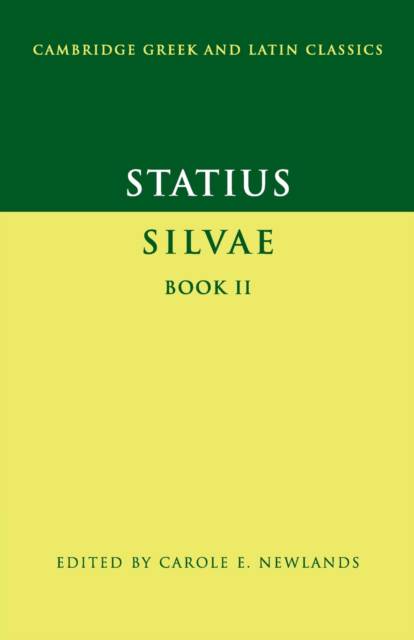
- Afhalen na 1 uur in een winkel met voorraad
- Gratis thuislevering in België vanaf € 30
- Ruim aanbod met 7 miljoen producten
- Afhalen na 1 uur in een winkel met voorraad
- Gratis thuislevering in België vanaf € 30
- Ruim aanbod met 7 miljoen producten
Zoeken
€ 64,95
+ 129 punten
Uitvoering
Omschrijving
With the exception of a poem on the unscripted death of a lion in the Colosseum, Book II of Statius' Silvae is largely domestic in theme. It reflects the more private side of Roman culture, its pleasures, houses, gardens, friendships, and personal losses; it concludes with a provocative tribute to the poet Lucan. Despite its variety, the book is carefully constructed as a unit, and this edition, which is suitable for use with advanced students, puts the book into its context in the history of Greek and Roman poetry. The commentary takes into account the important work done on the text of the Silvae in the past two decades as well as the new perspectives brought to bear on Flavian culture by historians and archaeologists. It explores Statius' use of the short poem as a playful engagement with literary tradition that also reflects changing ideas of Roman cultural identity.
Specificaties
Betrokkenen
- Auteur(s):
- Uitgeverij:
Inhoud
- Aantal bladzijden:
- 294
- Taal:
- Engels
- Reeks:
Eigenschappen
- Productcode (EAN):
- 9780521666237
- Verschijningsdatum:
- 28/03/2011
- Uitvoering:
- Paperback
- Formaat:
- Trade paperback (VS)
- Afmetingen:
- 137 mm x 213 mm
- Gewicht:
- 408 g

Alleen bij Standaard Boekhandel
+ 129 punten op je klantenkaart van Standaard Boekhandel
Beoordelingen
We publiceren alleen reviews die voldoen aan de voorwaarden voor reviews. Bekijk onze voorwaarden voor reviews.











